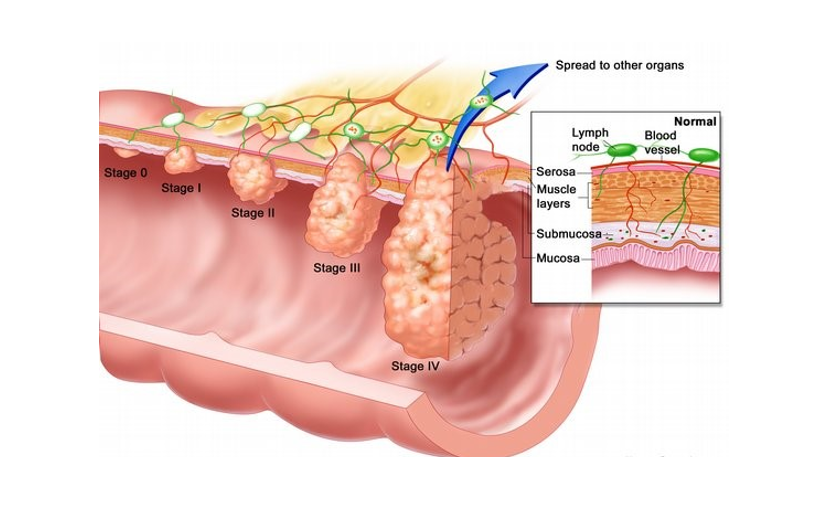What is Rectal And Colon Cancer?

Colorectal cancer — cancer of the colon and rectum — is the second leading cause of cancer-related deaths for both men and women. The general population faces a lifetime risk for developing the disease of about 5 percent, while someone whose family has a history of colorectal cancer has a 10 to 15 percent chance of developing the disease. The risk rises to over 50 percent in people with ulcerative colitis.
Stages of Colorectal Cancer
The risk of colorectal cancer recurrence can often be determined by the stage of cancer.
Stage I cancers have the lowest risk of cancer recurrence while stage II and III cancers have a higher risk of recurrence.
Stage II cancers are those that do not have any lymph nodes involved, but the tumors grew deeper through the wall of the colon or rectum or invaded into other organs that are removed at the time of surgery.
Stage III cancers refer to those that have spread to the lymph nodes.
Stage IV tumors have spread to organs distant from the colon or rectum such as the liver, lungs or brain (see figure below). Due to the individual differences in
Stage V tumors, patients follow a more individualized follow-up routine.
Symptoms of Rectal And Colon Cancer
Colorectal cancer is often a silent disease, developing with no symptoms at all. When symptoms do occur, they may include the following:
- Blood in or on the stool
- Change in bowel habits
- Stools that are narrower than usual
- General stomach discomfort (bloating, fullness, and/or cramps)
- Vomiting
- Diarrhea, constipation, or feeling that the bowel does not empty completely
- Weight loss for no apparent reason
- Rectal bleeding
- Constant tiredness, or new fatigue during the activity that was previously tolerated
If you have any of these symptoms for more than two weeks, see Coloproctologist immediately. While not everyone who has these symptoms will have colon cancer, persistence of these is not normal and requires additional investigation to determine the underlying cause.
After your treatment, the nurse will go over few instructions and you will be given a prescription for few medications and an appointment for a postoperative checkup few days later.

